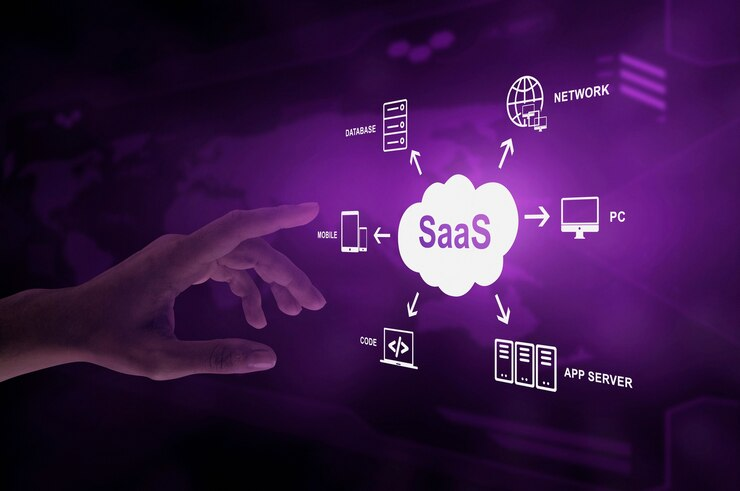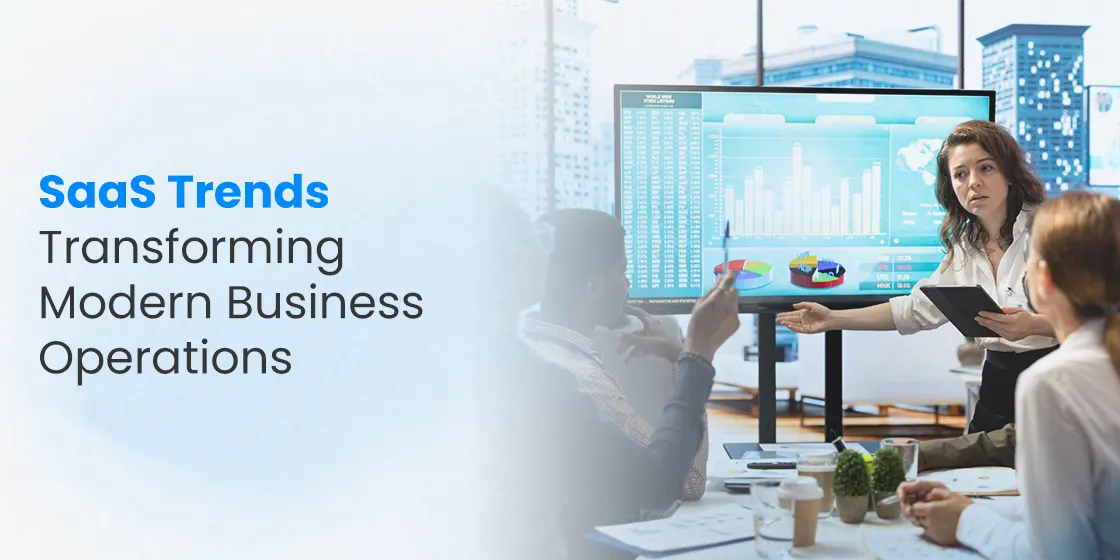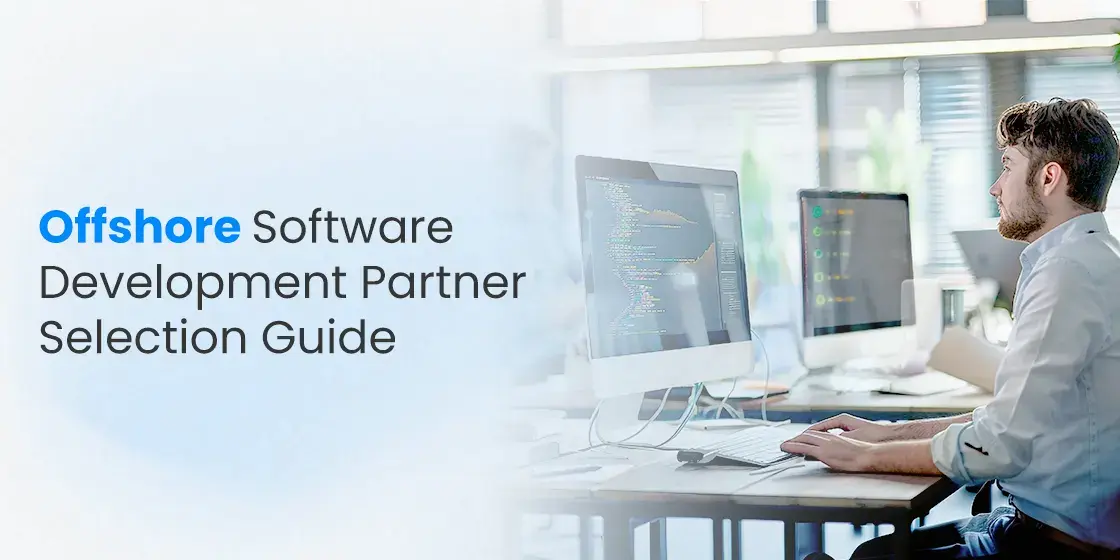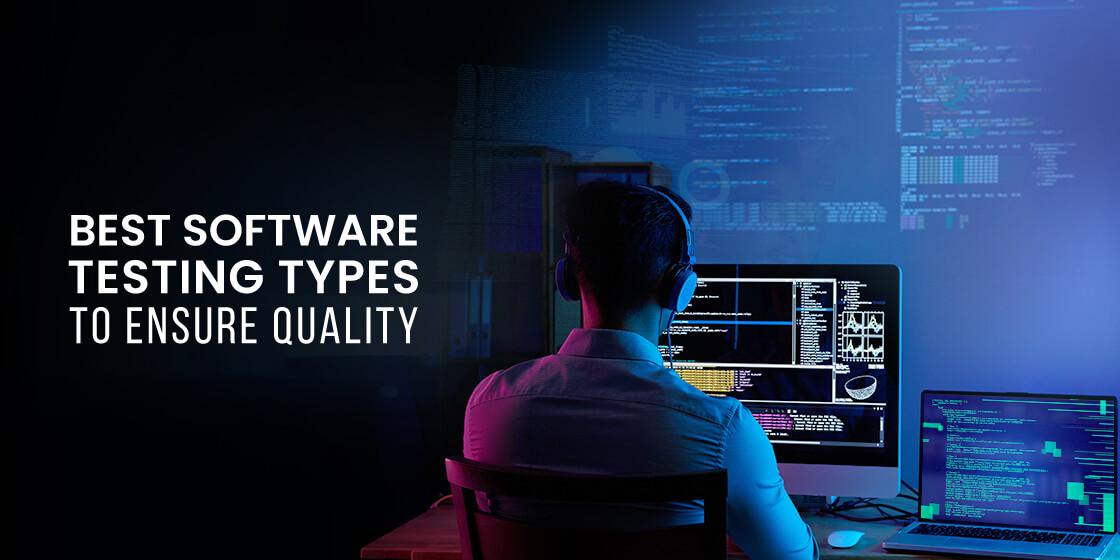SaaS Trends: Essential Developments Transforming Enterprise Software
The Software-as-a-Service industry continues its remarkable evolution, driven by advances in artificial intelligence, changing customer expectations, and the need for more specialized business solutions. As organizations worldwide accelerate their digital transformation initiatives, understanding the latest SaaS trends becomes crucial for making strategic technology investments that deliver measurable business value.
From autonomous AI systems to vertical specialization and flexible pricing models, the SaaS landscape is experiencing unprecedented innovation. This comprehensive analysis explores the most significant trends currently shaping the industry, providing insights that can help businesses navigate the evolving software ecosystem and make informed decisions about their technology strategy.
The Current State of Enterprise Software

The SaaS industry has reached a mature stage where differentiation comes not just from features, but from how intelligently software can adapt to business needs. Organizations are moving beyond simple cloud adoption to demanding solutions that can learn, predict, and act autonomously within their business processes.
Key indicators show this transformation is accelerating:
- Autonomous Operations: Companies are seeking software that can self-optimize and self-heal with minimal human intervention
- Industry Specialization: Generic solutions are losing ground to industry-specific platforms that understand domain workflows
- Value-Aligned Pricing: Traditional subscription models are giving way to usage-based and outcome-driven pricing structures
- Integration-First Approach: Businesses prioritize solutions that seamlessly connect with their existing technology stack
According to Fortune Business Insights, the global Software as a Service (SaaS) market size is projected to reach $375.57 billion in 2026, up from $315.68 billion in 2025. This growth is increasingly concentrated in North America, which holds nearly 47% of the global market share, while the Asia-Pacific region is emerging as the fastest-growing territory with a 22% CAGR.
This shift represents more than technological advancement—it’s a fundamental change in how software creates and delivers business value.
1. AI-Native Architecture: Beyond Simple Automation
AI-native platforms are transforming how businesses operate by enabling autonomous decision-making, continuous learning, and context-aware operations. These platforms drive efficiency by reducing the need for human intervention and optimizing business workflows autonomously.
The Rise of Autonomous Business Systems
The most transformative development in SaaS is the emergence of AI-native platforms that operate as autonomous business systems rather than assisted tools. Unlike traditional AI features bolted onto existing software, these solutions are built from the ground up to think, learn, and act independently.
Characteristics of AI-Native SaaS:
- Autonomous Decision-Making: Systems that can evaluate options and choose optimal actions without human input
- Continuous Learning: Platforms that improve performance based on outcomes and environmental changes
- Context-Aware Operations: Software that understands business context and adjusts behavior accordingly
- Multi-System Orchestration: AI that can coordinate actions across multiple applications and platforms
Real-World Applications:
Modern AI-native systems are handling complex business processes end-to-end. Sales platforms autonomously manage entire customer journeys from lead qualification to contract negotiation. Financial systems predict cash flow needs and automatically execute funding strategies. Customer success platforms identify at-risk accounts and implement retention campaigns without manual intervention.
Research from McKinsey’s State of AI report shows that 88% of organizations now use AI in at least one business function, with 72% adopting generative AI specifically. However, only 6-7% qualify as high performers achieving significant enterprise-wide EBIT impact, indicating that true AI-native transformation requires more than simple tool adoption.
This evolution is closely tied to artificial intelligence development, where organizations build intelligent systems that deliver autonomous business value.
The Operational Impact
Companies implementing AI-native solutions report significant operational improvements. Tasks that previously required human oversight are now handled autonomously, allowing teams to focus on strategic initiatives rather than routine management. The result is not just increased efficiency, but fundamentally new ways of operating that weren’t possible with traditional software.
2. Vertical SaaS: Deep Industry Specialization Wins
Vertical SaaS solutions are gaining traction as businesses demand software tailored to specific industries, with embedded domain knowledge and specialized workflows. These industry-specific platforms deliver greater efficiency and compliance, enabling companies to address unique challenges with precision.
Industry-Specific Solutions Outperform Generic Platforms
The trend toward vertical SaaS represents a strategic shift from broad, horizontal solutions to deep, industry-specific platforms. Rather than trying to serve all markets adequately, successful SaaS companies are building solutions that excel in specific domains.
Vertical SaaS companies demonstrate superior growth rates compared to horizontal platforms due to their ability to embed industry knowledge directly into software architecture.
Why Vertical SaaS Dominates:
- Regulatory Compliance: Built-in compliance frameworks reduce implementation complexity
- Domain Workflows: Pre-configured processes that match industry standards
- Specialized Integrations: Native connections to industry-specific systems and data sources
- Expert Support: Customer success teams with deep industry knowledge
High-Impact Verticals:
Healthcare platforms integrating telemedicine with AI diagnostics, construction management systems with IoT sensor data, legal technology combining contract intelligence with case management, and financial services platforms embedding real-time risk assessment.
Healthcare software development and financial software development demonstrate how vertical specialization leads to better outcomes for both providers and users.
Fuel innovation by leveraging bespoke software solutions. Get in touch with our team of experts to build cutting-edge software products.
Get a Quote3. Usage-Based Pricing: Aligning Cost with Value
Usage-based pricing models align costs with actual business outcomes, ensuring companies only pay for what they use while enabling scalable, value-driven pricing structures.
The Evolution Beyond Subscription Models
Traditional subscription pricing is evolving toward more sophisticated models that align costs directly with business value. Usage-based pricing has become increasingly popular among SaaS and AI companies seeking to align revenue with value delivered.
Modern Pricing Approaches:
- Consumption-Based Models: Charges based on actual usage metrics like API calls, data processing, or transaction volume
- Outcome-Oriented Pricing: Fees tied directly to business results and performance improvements
- Hybrid Structures: Combining base subscriptions with usage overages for predictable yet flexible pricing
- Dynamic Pricing: AI-powered systems that adjust pricing based on demand, value delivered, and market conditions
Implementation Benefits:
Usage-based models create natural alignment between software costs and business growth. Companies report higher customer satisfaction because they only pay for what they actually use, while providers benefit from revenue that scales automatically with customer success.
Industry research shows that organizations implementing usage-based pricing models often see improved customer retention and more predictable revenue growth aligned with customer value realization.
4. API-First Architecture and Composable Systems
API-first platforms prioritize seamless integration, enabling businesses to connect and customize systems with flexibility and real-time connectivity across diverse applications.
Building for Integration and Flexibility
Modern SaaS platforms are designed with API-first architecture, making integration a core capability rather than an afterthought. This approach recognizes that business software must work seamlessly within complex technology ecosystems.
API-First Design Principles:
- Developer Experience: Clear documentation, SDKs, and sandbox environments for easy integration
- Composable Architecture: Modular systems that can be combined and recombined as business needs change
- Real-Time Connectivity: Live data synchronization across platforms and applications
- Security Integration: Built-in authentication and authorization for secure data exchange
Business Impact:
Organizations using API-first SaaS solutions report faster implementation times, reduced technical debt, and greater flexibility in adapting to changing business requirements. The ability to connect disparate systems creates operational efficiencies that wouldn’t be possible with standalone applications.
This approach aligns with modern software development practices that prioritize flexibility and integration capabilities.
5. Micro-SaaS: Focused Solutions for Specific Problems
Micro-SaaS platforms specialize in solving narrow business challenges with precision and efficiency. Their focused approach allows small teams to deliver exceptional value in underserved niches, competing effectively against larger, broader solutions.
Small Teams, Powerful Impact
The micro-SaaS trend represents a shift toward highly focused applications that solve specific business problems with precision. Rather than building comprehensive platforms, successful micro-SaaS companies create specialized tools that excel in narrow domains.
Micro-SaaS Characteristics:
- Single-Problem Focus: Solutions designed to address one specific business challenge exceptionally well
- Rapid Development: Shorter development cycles and faster time-to-market
- Lean Operations: Small teams with minimal overhead and focused expertise
- Niche Market Targeting: Serving specialized user bases with precise needs
Success Factors:
The most successful micro-SaaS applications identify underserved niches within larger markets and deliver exceptional solutions for specific use cases. This focused approach allows small teams to compete effectively against larger platforms by providing superior functionality for targeted scenarios.
6. Embedded Analytics: Intelligence Within Workflows
Embedded analytics deliver real-time insights and predictive recommendations directly within business workflows, empowering users to make data-driven decisions without leaving their primary applications.
Data-Driven Decision Making at the Point of Action
Rather than requiring users to switch between applications for reporting and analytics, modern SaaS platforms embed intelligent insights directly into daily workflows. This trend transforms how organizations interact with business data.
Embedded Analytics Features:
- Contextual Insights: Relevant data analysis presented within the user’s current workflow
- Predictive Indicators: Forward-looking metrics that help users anticipate trends and issues
- Automated Recommendations: AI-powered suggestions based on data patterns and business context
- Real-Time Monitoring: Live dashboards that update automatically as business conditions change
Operational Benefits:
By integrating analytics directly into business processes, organizations reduce the time between insight generation and action implementation. Users can make data-driven decisions without disrupting their workflow or learning separate analytical tools.
7. Enhanced Security and Privacy-by-Design
Modern SaaS platforms prioritize proactive security measures like zero-trust architecture and end-to-end encryption, embedding privacy and compliance features from the ground up.
Trust as a Competitive Advantage
Security and privacy considerations have moved from compliance requirements to competitive differentiators. Organizations prioritize SaaS providers that demonstrate proactive security measures and transparent data practices.
Modern Security Approaches:
- Zero-Trust Architecture: Verify every access request regardless of source or user credentials
- End-to-End Encryption: Protect data throughout its entire lifecycle
- Privacy-First Design: Build data protection into system architecture rather than adding it later
- Automated Compliance: Systems that help organizations maintain regulatory compliance automatically
Industry analysis reveals that API security has become particularly critical as organizations experience widespread API-related security challenges, making robust security infrastructure essential for business operations.
Our approach to secure software development emphasizes building security into the foundation of applications rather than treating it as an add-on feature.
8. Low-Code and No-Code Platform Integration
Low-code and no-code platforms empower non-technical users to customize and automate workflows, reducing IT dependencies and accelerating solution deployment.
Democratizing Software Development
The integration of low-code and no-code capabilities into SaaS platforms enables non-technical users to customize and extend applications without traditional programming skills. This trend democratizes software development and reduces dependency on technical resources.
Platform Capabilities:
- Visual Development: Drag-and-drop interfaces for creating workflows and applications
- Business Process Automation: Tools that enable users to automate repetitive tasks without coding
- Custom Integrations: User-friendly interfaces for connecting different systems and data sources
- Rapid Prototyping: Quick creation of MVPs and proof-of-concept applications
Business Impact:
Organizations report faster solution deployment, reduced IT backlogs, and increased business user satisfaction when they can customize software to meet specific needs without technical dependencies.
9. Sustainability and ESG Integration
As environmental and social considerations become integral, SaaS companies are increasingly adopting sustainable practices and transparent reporting. This trend reflects growing demand for eco-friendly operations and responsible governance from both businesses and consumers.
Environmental Responsibility in Software Operations
Environmental, Social, and Governance (ESG) considerations are becoming important factors in SaaS vendor selection. Organizations seek providers that demonstrate commitment to sustainable practices and responsible business operations.
Sustainability Initiatives:
- Carbon-Neutral Operations: Using renewable energy and offsetting emissions
- Efficient Cloud Computing: Optimizing resource usage to minimize environmental impact
- Transparent Reporting: Providing clear metrics on sustainability performance
- Green Development Practices: Building applications with energy efficiency as a design principle
Major cloud providers are investing heavily in renewable energy and efficient data centers, making it easier for SaaS companies to operate sustainably while meeting customer expectations for environmental responsibility.
10. Real-Time Collaboration and Remote-First Design
With the shift to remote and hybrid work models, SaaS platforms are prioritizing real-time collaboration and seamless communication across distributed teams. These tools support asynchronous workflows, enabling teams to collaborate efficiently despite time zone differences.
Building for Distributed Teams
The permanent shift toward remote and hybrid work models has made real-time collaboration capabilities essential for business software. Modern SaaS platforms are designed from the ground up to support distributed teams working asynchronously across time zones.
Collaboration Features:
- Simultaneous Editing: Multiple users working on the same documents or projects in real-time
- Asynchronous Communication: Built-in messaging and notification systems that respect time zone differences
- Version Control: Automatic tracking of changes and ability to revert or merge different versions
- Mobile Optimization: Full functionality available on smartphones and tablets for anywhere access
This evolution aligns with web application development that focuses on mobile-first, collaborative user experiences
Strategic Implications for Businesses
Understanding SaaS trends helps organizations make informed technology decisions, ensuring long-term success by selecting solutions that align with both current and future business needs.
Making Informed Technology Decisions
Understanding these trends enables organizations to make strategic technology investments that position them for long-term success. The key is selecting solutions that align with both current needs and future business direction.
Evaluation Criteria:
- Intelligence Level: Does the software learn and improve over time, or require constant manual management?
- Integration Capability: Can the solution connect seamlessly with existing systems and future additions?
- Pricing Alignment: Does the pricing model scale appropriately with business growth and value delivery?
- Industry Fit: How well does the solution understand and address industry-specific requirements?
Implementation Strategy:
Successful organizations approach SaaS adoption strategically, starting with pilot implementations that demonstrate value before scaling across the enterprise. They prioritize solutions that can grow and evolve with the business rather than requiring replacement as needs change.
Our software development consulting services help organizations navigate these decisions and implement solutions that deliver measurable business results.
Future Outlook: What’s Coming Next
Preparing for Continued Evolution
The SaaS industry will continue evolving rapidly, driven by advances in artificial intelligence, changing work patterns, and increasing demands for specialized business solutions. Organizations that understand and adapt to these trends will be better positioned to leverage technology for competitive advantage.
Emerging Developments:
- Autonomous Business Operations: AI systems that can manage entire business processes with minimal human oversight
- Industry-Specific AI: Machine learning models trained on domain-specific data for superior performance
- Quantum-Enhanced Computing: New computational capabilities that enable previously impossible analytical and optimization tasks
- Augmented Reality Integration: Immersive interfaces that blend digital information with physical work environments
Preparation Strategies:
Organizations should focus on building technological foundations that can adapt to future innovations rather than committing to rigid systems. This includes investing in API-first platforms, developing data strategies that support AI initiatives, and building teams with skills in emerging technologies.
Conclusion: Navigating the SaaS Evolution
The SaaS industry continues to mature and specialize, offering organizations unprecedented opportunities to leverage intelligent software for business advantage. Success in this environment requires understanding not just current capabilities, but how these trends will shape future business operations.
The most successful organizations will be those that embrace AI-native solutions, choose industry-specific platforms when appropriate, and prioritize integration capabilities that enable flexible, evolving technology stacks. By understanding and adapting to these trends, businesses can position themselves to thrive in an increasingly competitive and technology-driven marketplace.
Whether you’re evaluating new SaaS solutions, optimizing existing systems, or planning technology strategy, these trends provide a roadmap for navigating the dynamic software landscape. The key is balancing innovation with practical business needs, ensuring that technology investments deliver measurable value while positioning the organization for future growth and adaptation.
For organizations ready to embrace these trends and build next-generation software solutions, partnering with experienced development teams who understand both current capabilities and future directions can make the difference between technology success and stagnation.
Empower your digital initiatives with BariTechSol, a premier custom software development company. Our skilled team tailors cutting-edge solutions to your unique needs. Elevate your tech experience and stay ahead in the digital realm. Partner with BaritechSol and code the success of your next big idea.


